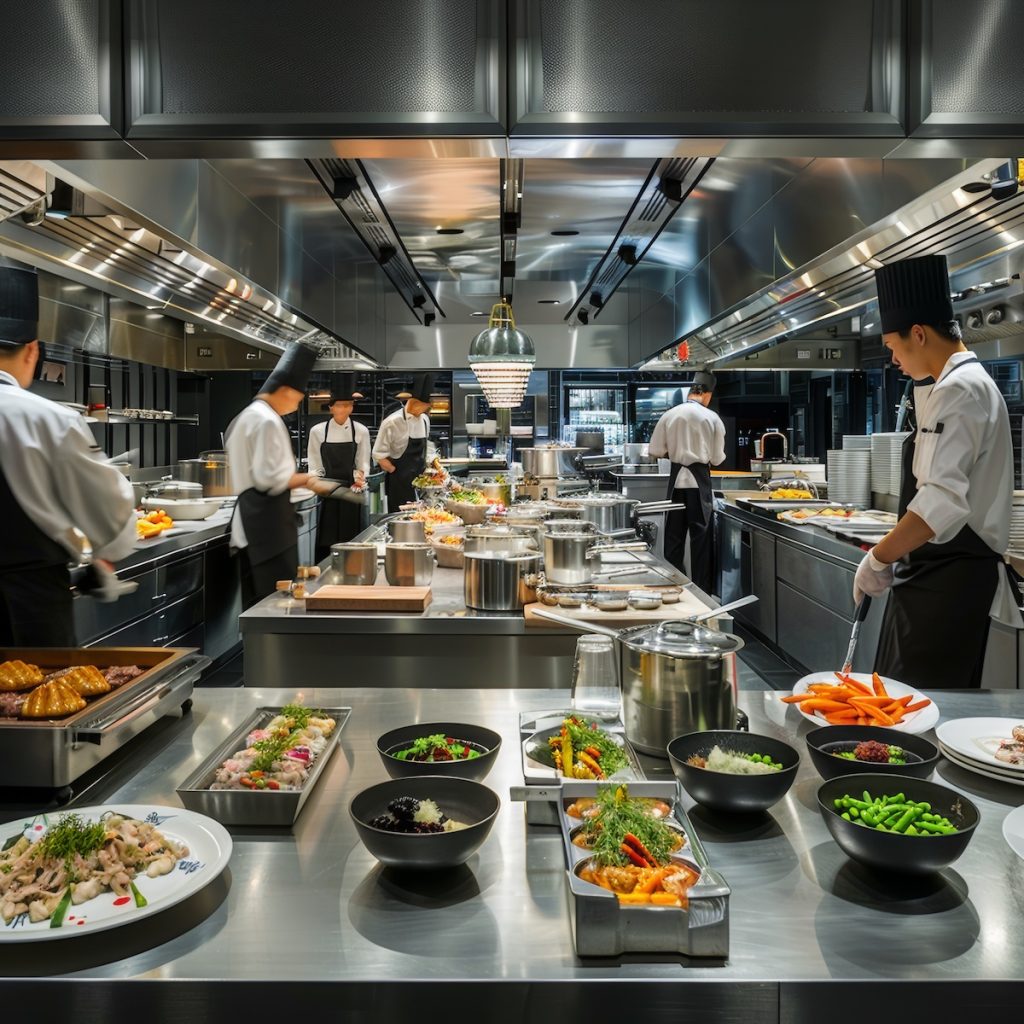The Advantages of On-the-Job Culinary Training
On-the-job culinary training offers a unique and invaluable pathway for aspiring chefs and culinary professionals to build their skills in a real-world environment. Unlike formal culinary education, which takes place in a classroom or training kitchen, on-the-job training immerses individuals in the fast-paced, high-pressure atmosphere of a professional kitchen from day one. This hands-on approach, where you learn by doing, allows for direct learning under experienced chefs, providing real-time feedback and practical problem-solving that can’t be replicated in a classroom.
Whether starting as a line cook, apprentice, or kitchen assistant, individuals benefit from learning by doing, accelerating skill development. They gain firsthand experience in food preparation, plating, and kitchen operations while adapting to the dynamic nature of a working kitchen. This type of training also fosters resilience and adaptability, critical traits for success in the culinary world.
For those seeking to climb the culinary ladder, on-the-job training can often lead to quicker career advancement as chefs recognize and reward dedication and talent. In this post, we will explore the many benefits of on-the-job culinary training and why it remains a vital route for those pursuing a career in the culinary arts.
Here are the key benefits of getting on-the-job culinary training:
1. Real-World Experience
- On-the-job training provides hands-on experience in a real kitchen environment, helping trainees learn to handle the pressures and dynamics of a professional kitchen.
2. Learning from Experienced Chefs
- Trainees receive mentorship from seasoned chefs and kitchen staff, gaining practical insights and techniques that are invaluable in the culinary field.
3. Immediate Application of Skills
- Skills learned during training are immediately put into practice, reinforcing learning and accelerating mastery of culinary techniques.
4. Understanding Kitchen Operations
- On-the-job training exposes individuals to the flow of kitchen operations, from prep work to service, giving them a comprehensive understanding of how a professional kitchen functions.
5. Career Advancement
- Many kitchens promote from within, so those who demonstrate dedication and talent during on-the-job training may have opportunities for faster career advancement.
6. Cost-Effective Learning
- Unlike formal culinary schools, on-the-job training often comes without tuition costs, making it a more affordable option for learning and building a career in the culinary industry.
7. Adaptability and Resilience
- Working in a fast-paced kitchen helps develop adaptability and resilience, critical traits for succeeding in the high-pressure culinary world.
8. Networking Opportunities
- Trainees build relationships with professionals in the industry, which can lead to future job opportunities and collaborations.
9. Flexible Learning Pace
- On-the-job training allows for a more flexible learning pace, letting individuals learn and improve quickly while gaining valuable work experience.
Would you like to expand on any of these points?







